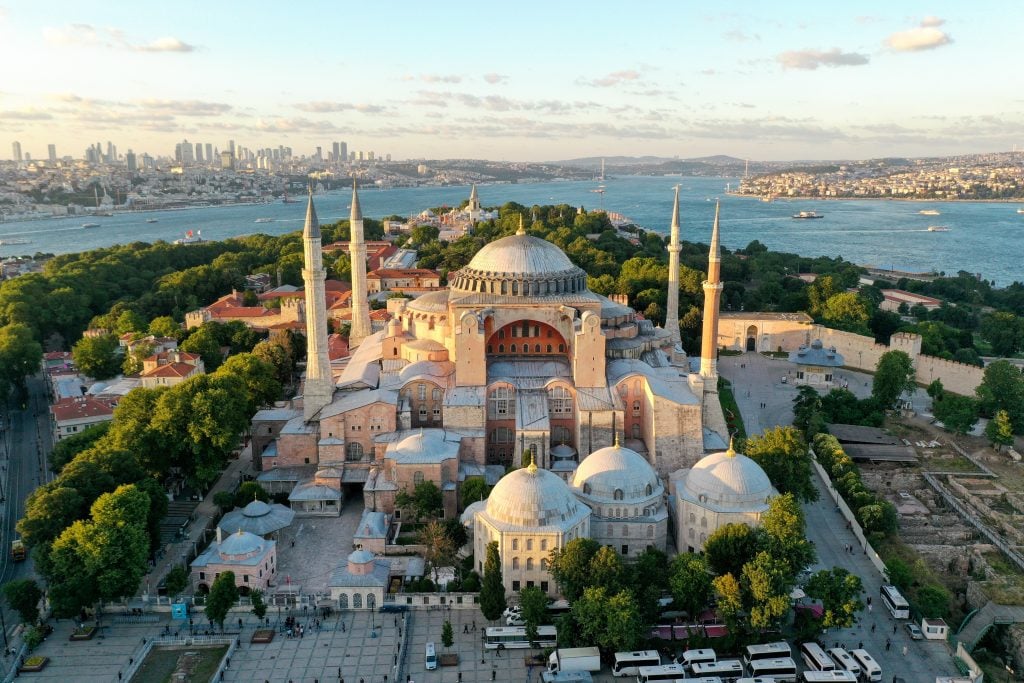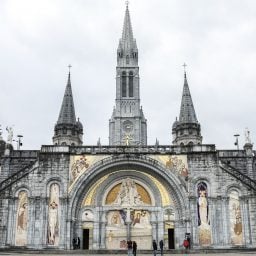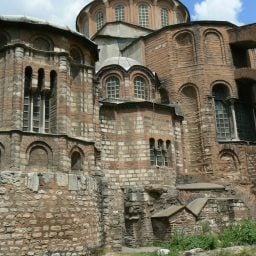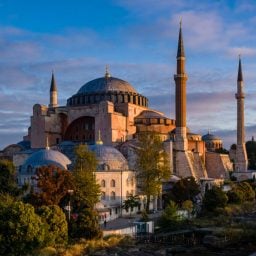Mosaics depicting Christian icons in the Hagia Sophia will be covered during muslim prayer, after the site was converted back into a functioning mosque earlier this month.
The announcement came from a spokesperson for Turkish President Recep Tayyip Erdoğan, who said on Sunday that some images depicting the Virgin Mary and the archangel Gabriel, which are situated in the direction of Mecca, which Muslims face during prayer, would be covered during religious services.
The images would be uncovered when the building was otherwise open for tourists.
The spokesperson said that other Christian figures depicted in the building did not pose a problem for worshippers since they were not in the direction of Mecca, but did not elaborate if there would be instances in which those would be covered.
Built by the Roman Emperor Justinian in 537 AD as a Greek Orthodox Church, the architectural wonder was turned into a mosque in 1453 when Ottomans conquered the city, and converted to a museum in the late 1930s.
Since then, it has been one of the most popular tourist sites in the country, welcoming millions of visitors. In 2019 alone, more than three million people visited.

The Virgin Mary and Christ mosaic in the apse of Hagia Sophia. Courtesy Wikimedia Commons.
Converting the space back into a mosque has become a chief goal of Erdoğan, and a point of contention between Greece and Turkey, and Christians and Muslims.
Heritage experts are now sounding the alarm.
In a statement, UNESCO director-general Audrey Azoulay called Hagia Sophia “an architectural masterpiece and a unique testimony to interactions between Europe and Asia over the centuries.” She added that the building “reflects the universal nature of its heritage,” which “makes it a powerful symbol for dialogue.”
The building’s complex legacy is embedded in its walls. Throughout history, representational scenes were destroyed by iconoclasts, damaged in earthquakes, painted over, and eventually restored, though not all of them survived.
The governments of Greece, Russia, and the United States have decried the decision to convert the building into a mosque, as have Pope Francis and scores of historians.
Byzantine specialist Gary Vikan, who sent a letter of concern about the Hagia Sophia to the US State Department last week, told the Art Newspaper: “There’s nothing that stands between an iconoclast and the mosaics.”










